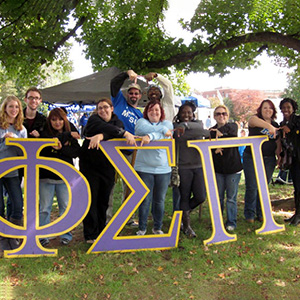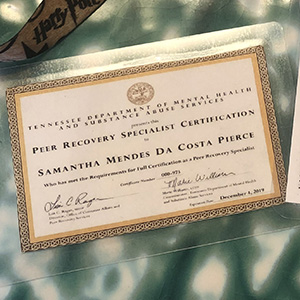 Sometimes the best organization to understand your situation is one that focuses specifically on your areas of concern. The Peer Intensive Care Services at Tennessee Mental Health Consumer Association, with a number of locations in the state, does just that. As their website explains, they concentrate on giving “people with mental illness a reason to believe.” The organization was created and, including the CEO, is run by people in recovery.
Sometimes the best organization to understand your situation is one that focuses specifically on your areas of concern. The Peer Intensive Care Services at Tennessee Mental Health Consumer Association, with a number of locations in the state, does just that. As their website explains, they concentrate on giving “people with mental illness a reason to believe.” The organization was created and, including the CEO, is run by people in recovery.
It’s also helpful if the person with whom you are meeting, in recovery, has walked in your shoes.
That’s where Sam Mendes Da Costa Pierce comes in.
The Beta Psi Chapter Member is a certified peer recovery specialist working with individuals who are living with depression, mental illness and substance use disorders such as alcoholism and drug addiction.
“I, myself, am in recovery, and that gives me an extra hand at what they are going through.”
Growing up in a family of addiction, Pierce said, she now deals with depression, PTSD and anxiety. “My mom got sober 11 years ago when I was 16. Once my parents got better, I wanted to help people.”
 So, she studied psychology, graduating from Middle Tennessee State University in 2014 and maintaining the goal to return for grad school for counseling.
So, she studied psychology, graduating from Middle Tennessee State University in 2014 and maintaining the goal to return for grad school for counseling.
Working with those who have found themselves in severe situations because of their mental health feels like a calling of sorts, she said. “These are people who can’t quit on their own, have come to us from rehab … social workers refer them to us. They are in the hospital – homeless, no insurance, overdosed, attempted suicide or homicide. They might be in psychosis, catatonic.”
The individuals are usually in the acute unit for three to five days, she said, and sometimes against their own will … “for their own safety.”
She connects with them in the first 90 days, right as they are coming out of crisis, and helps them build support structures. “I typically meet with them in the hospital, where we are contracted,” she said. “We offer support as they learn to do it for themselves. We are their guide and cheerleader.” Some, she said, just want someone to talk to, go to appointments with them, play games or participate in an activity. “We give a sense of hope and are that ear they need to talk to.”
Assigned to different units, her favorite is “groups.” It’s a place where peers can share their stories about what’s been going on and their progress in recovery, she said, and they help each other figure out what they need. “They are dealing with family dysfunction, marital issues.”
 Interestingly, group activities were favorites while she was a Member of Phi Sigma Pi, she said, noting that they helped her to blossom. “I’m an introvert. I was able to get out of my shell more.” This interaction helped enough that she became the Scholarship Chair for Beta Psi.
Interestingly, group activities were favorites while she was a Member of Phi Sigma Pi, she said, noting that they helped her to blossom. “I’m an introvert. I was able to get out of my shell more.” This interaction helped enough that she became the Scholarship Chair for Beta Psi.
“I had awesome friends at Phi Sigma Pi who helped me recognize that I had problems,” she said. “It was embarrassing at the time, realizing that I’m not OK.” Self-care became very important. “I got rid of toxic people in my life. I got involved in the Fraternity, with people who really cared.”
A big part of Phi Sigma Pi, she said, is the building of support, making friendships and connecting … not just socially. “The connections can help lead you to a better job. You know someone has your back.” And Leadership in Action, she said, helped set the stage for her professional life.
Today, Pierce continues self-care. Working with and communicating with people with mental illness takes a lot out of her, so she said she makes sure to get away for a day or two to focus on a positive experience. With the burnout rate high among workers such as Pierce, she tries to remember to be encouraging to herself and her coworkers. “Often you give all you can without reward.”
 She knows she’s not there to fix people; they are there to fix themselves. But there are times she sees someone totally broken down in the hallway. She helps them look at small successes and use the tools they are being taught. “When they reach a goal, I am there to cheer for them.”
She knows she’s not there to fix people; they are there to fix themselves. But there are times she sees someone totally broken down in the hallway. She helps them look at small successes and use the tools they are being taught. “When they reach a goal, I am there to cheer for them.”
Outside of work, Pierce said she lives the life of “nerdy people.” She and her husband, Aiken, have been married for two and a half years. Both love movies – they got married in a vintage movie theater – and collecting movie memorabilia and toys.
